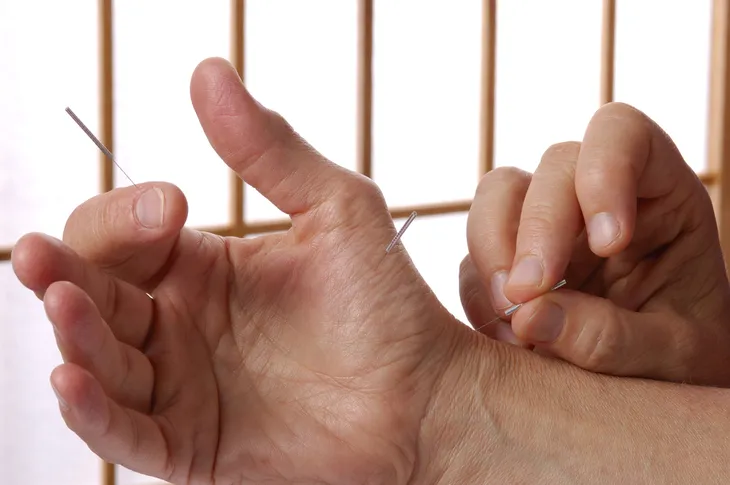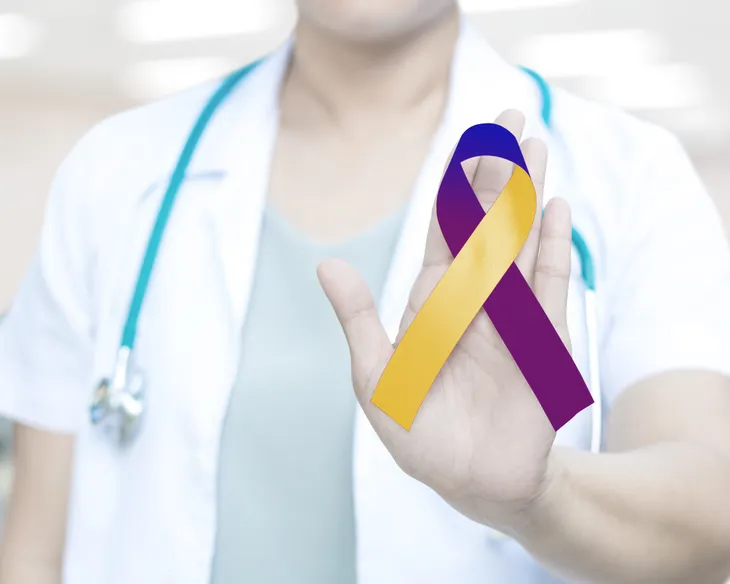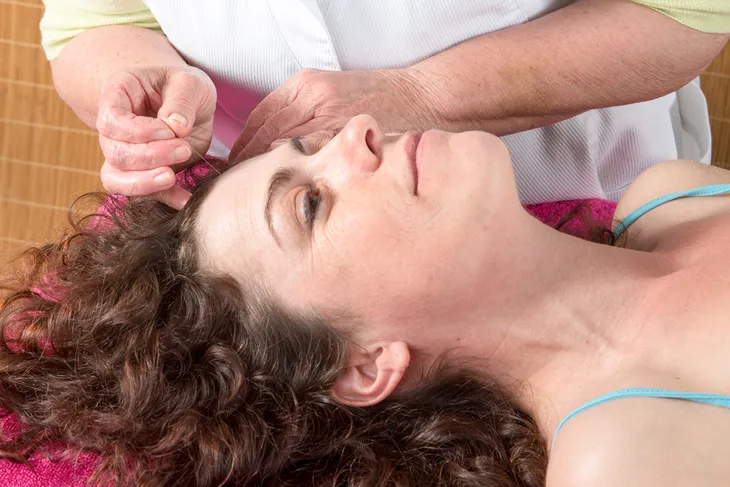Acupuncture is one of the most popular alternatives to traditional medical treatment. But it’s hardly new — in fact, acupuncture is considered an ancient medical practice in its nation of origin, China. Over hundreds of years trained practitioners have taken their practice of stimulating specific points on the body using tiny needles to just about every corner of the earth.
For many people, the spread of acupuncture from Asia has brought significant pain relief. Today, the practice is considered one of the best alternatives to going the more usual route, which typically involves physiotherapy, stretchy, and taking prescription medication. Acupuncture proponents insist it can help with a variety of health issues that cause pain — so, can it help you?
1. Sleeplessness
There’s nothing painful about lying awake at night, per se. But serious, chronic insomnia does have a significant and negative impact on individuals struggling with the condition. For example, sleeplessness can cause one to feel tired, struggle to remain focused on tasks, and may weaken their immune systems. And that’s not even addressing the sheer frustration of lying awake through the night.
To this point, there are surprisingly few ways to overcome insomnia. Medications can help, but typically become less effective over time and may come with annoying side effects. And with the proliferation of bright screens, the problem isn’t about to go away. Thankfully, it appears acupuncture can help. Research shows that acupuncture, in combination with herbal treatments, can help individuals get to sleep without medications. Additionally, the acupuncture treatments brought no serious side effects.
2. Joint Pain
Joint pain can affect just about anyone at any age, but it’s most prevalent among the elderly and people with conditions like arthritis and osteoporosis. For these people, joint pain is an incredibly frustrating part of daily life — it literally accompanies every movement, from grasping a utensil to bending over.
As with many of the other conditions on this list, joint pain is often treated with prescription or over-the-counter medications that can bring their own unique side effects, from upset stomach to constipation. Acupuncture, however, has been shown to alleviate pain in the joints without adding its own problems through nasty side effects.
3. Cancer Recovery
There may be no more frightening diagnosis than one involving the word “cancer.” Although there are many different types of cancer, each with its own threat level, virtually all present patients with significant health challenges that can and often do require extensive pain management. This is especially true for cancer patients who must undergo radiation treatment, or chemotherapy.
With pain medications often coming up short or bringing their own side effects, cancer patients are often left looking for alternative treatments to help manage pain. Acupuncture has been shown to help not only with pain management, but also in the restoration of the immune system following exhausting treatments like chemotherapy.
4. Dementia
There may be no more devastating diagnosis than one involving dementia, often as a result of the onset of diseases like Parkinson’s or Alzheimer’s. These diseases can cause slow or even rapid decay in parts of the brain that play important roles in maintaining memory. In time, the cognitive decline they cause can result in individuals forgetting everything of importance to them — from their daily schedules to the names and faces of those closest to them.
Acupuncture cannot reverse the damage caused by diseases like Parkinson’s and Alzheimer’s, but it may be able to help significantly slow cognitive decline, giving individuals more time with their most cherished memories. In one study, patients with Parkinson’s who were treated with acupuncture performed better in a number of important areas, from walking to handwriting and insomnia. Acupuncture was also responsible for helping patients with their anxiety and depression, while presenting no significant side effects.
5. Limits Headache and Migraine Pain
Headache and migraine pain can have devastating consequences for sufferers — it can prevent one from carrying out even the most basic of daily activities, from eating to using a computer screen, watching television, even sleeping. In search of relief, patients often turn to powerful pain medications that may be able to alleviate the suffering but often come with serious side effects.
But acupuncture may be able to help without bringing a range of problematic side effects. Research shows that individuals who receive acupuncture support from trained practitioners experience fewer headaches. Additionally, many patients receiving acupuncture reported that, when a headache did emerge, it was significantly less painful than before acupuncture was performed.
6. Back Pain
Back pain affects many, many people. There are a number of reasons this is the case, starting with the tendency of back muscles and joints to weaken with age. In addition, many of the activities we carry out on a daily basis — from sitting at a desk, to sitting in a car, to sitting on the couch at home — can compound the decline of back functionality and increase the chances one will suffer an injury.
Most people who experience back pain reach for medicated creams or pain medication (either prescribed or over-the-counter). But a growing number of people are trying acupuncture in search of relief from back pain. In fact, a study conducted six years ago showed that patients receiving acupuncture experienced less pain in their neck, shoulders, and back compared to people who received no acupuncture treatment.









